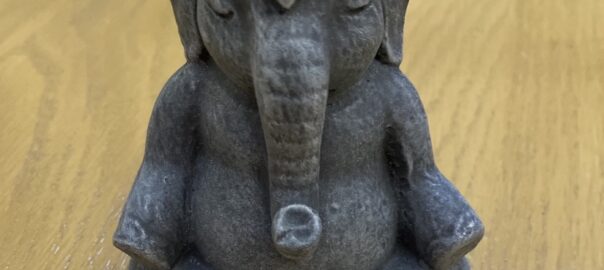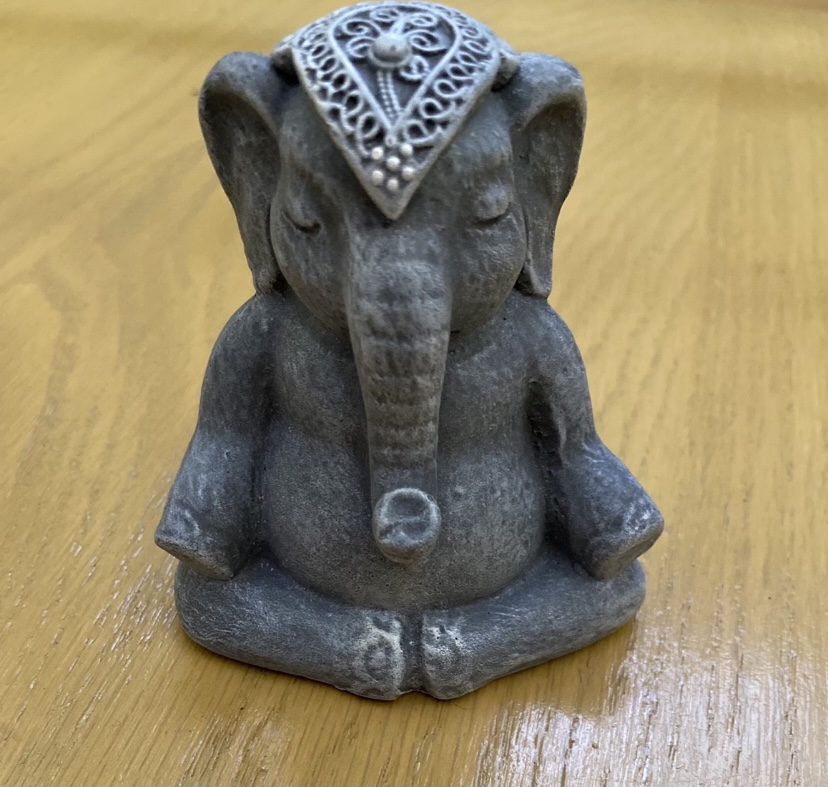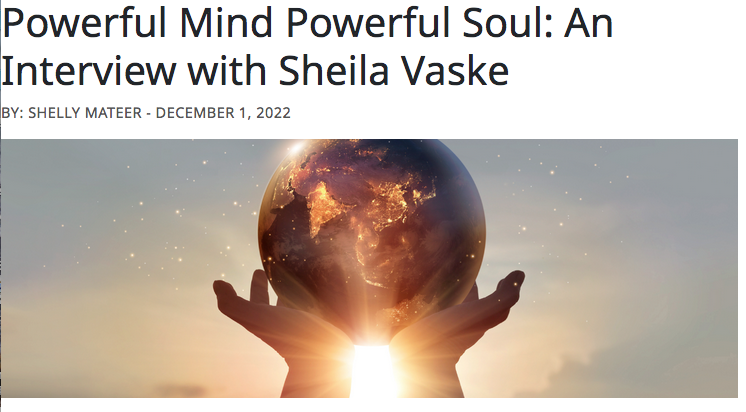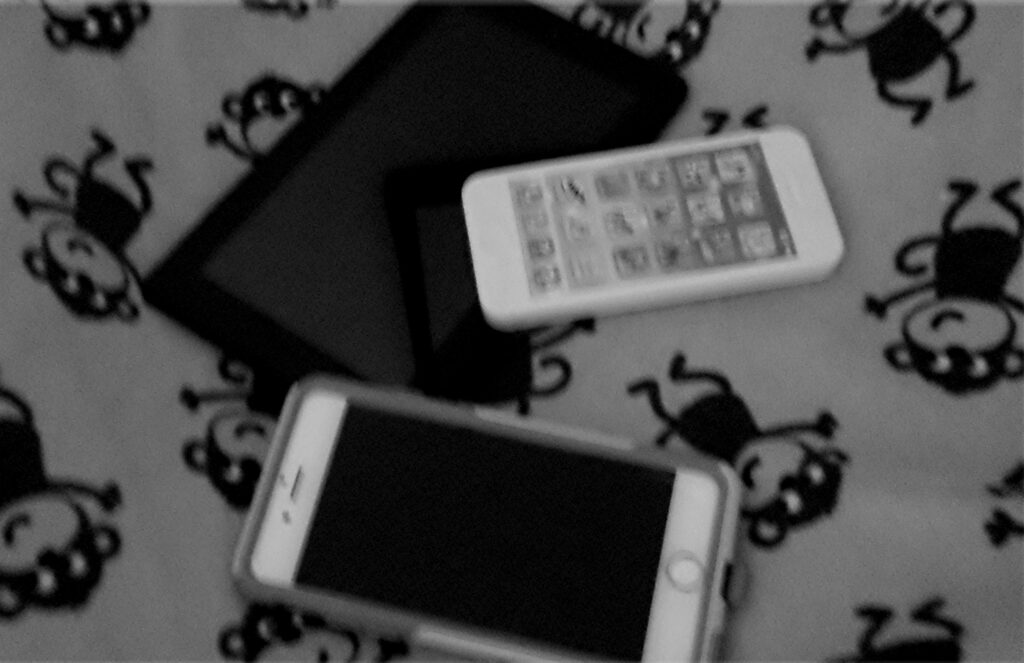I had seen too much, yet somehow still had not seen enough. They were calling me back to Washington, D.C., yet I knew I belonged where I was. The truth was, I had never liked any job I had ever had and this one was no different. My one desire was to be my own boss, to live on my own terms. So, what did I do? I decided to make a change.
I quit. I resigned from the Central Intelligence Agency.
But even though my resume was a virtual black hole, having worked undercover for the CIA for the previous eight years, this was just the beginning of my true calling.
It began there, I became an entrepreneur.
I recently had the opportunity to interview Stacey Sparks-Huff, entrepreneur and creator of Mr. Crumbles’ Delectables. Stacey was one of those kids who just didn’t know what she wanted to do when she grew up. In her own words, she fumbled through life taking various jobs that were very unfulfilling, and getting fired from most of them. Yet she always had an entrepreneurial spirit. While she was working these jobs, her mind was always busy creating ideas, inventions, and stories. She was always thinking of ways that she could be her own boss.
She took a chance and started her first business – Lypo-Palooza. She developed her own cellulite treatment capsule and skin cream, not by going to school for chemistry, but by having the drive to figure things out. She painstakingly researched natural herbs that could help rid the body of toxins that may be trapped in fat cells and once she figured out which herbs were the most beneficial for the treatment of cellulite, she started formulating until she believed she had the right combination. She then took her ideas to a lab and worked with experts in the herbal supplement field. After about a year, she had it formulated perfectly and her product was used by celebrities as well as featured in national magazines. Stacey didn’t stop there. She also created an egg substitute. This time she didn’t have to get any help from food scientists, instead she basically turned her kitchen into a test kitchen until she perfected it.
Stacey also started one of the first plus-sized bridal shops in the country and later started the first online plus-sized bridal boutique. She had realized during a stint as a bridal consultant that most of her brides were over a size twelve and couldn’t fit into any of the sample bridal gowns. Stacey couldn’t stand to see these brides feel so defeated, so she set out to change that. This endeavor was one of her biggest and best accomplishments- she made so many brides happy and still keeps in touch with many of them today.
Stacey’s last business just prior to Mr. Crumbles’ Delectables was Simple VGN., a vegan baking mix company that she created with her son. They came up with the idea, landed an investor, and had Walmart interested in putting their product in six hundred stores right off the bat. Unfortunately, this business was impacted by COVID. Then Stacey’s mother passed away suddenly. Stacey resigned from the company and was experiencing tremendous grief.
Persuaded by her husband, Stacey reluctantly picked herself up off of the floor and began baking. Out of her deep sadness and loss sprung her newest endeavor- Mr. Crumbles’ Delectables. Begun as a hobby to help her heal, it quickly turned into a business when her husband would take some of her baked goods to work with him. People soon began placing orders and Mr. Crumbles was born!
Stacey Sparks-Huff is a true innovator. I was curious about her view on life, and how other budding entrepreneurs could learn from her experience. My interview follows:
You started your latest company, Mr. Crumbles, as a “hobby” after the passing of your mother. Describe a little bit about this journey. How did you basically get yourself out of mourning and on to feeling better? Do you have any tips for others who are experiencing loss to help them get motivated and feel better?
Yes, Mr. Crumbles’ started out as a hobby to help me heal from my mother’s passing and it turned into an unexpected business. My husband encouraged me to start baking as a hobby and he would take some of my baked goods to work with him. Well, people started placing orders and it quickly turned into a business! My advice to anyone experiencing loss or grief is to let yourself feel it and go through the process. It comes in waves, but on the days you are feeling “ok”, try to get up and do something that makes you happy or something that comforts you. To be honest, when my husband suggested I start baking, I didn’t want to. I didn’t even want to get out of bed, take a bath, or put makeup on. Everything felt like a chore. I had to force myself at first but as the days went on, I started to feel better. I hope that this can help someone out there that may be struggling.
You mention the importance of finding a mentor. For our youngest readers, or really anyone just starting out in a field, how do you go about finding a mentor? How would you advise someone just starting out on how to find a mentor?
Yes, find yourself a mentor! As I had mentioned before, LinkedIn is such a valuable resource to find experts in your field and it makes them accessible. My suggestion would be to reach out to someone who has had success in your field and ask them for a brief meeting. Be honest with them about where you are in your journey and ask if they could mentor you. Most of the time, they will offer their time to you or refer you to someone who can. Another resource would be the SBDC in your area (Small Business Development Centers) or other small business organizations in or near your city.
How do you manage to not only run a business but to promote your business or product? How do you go about getting a company like Walgreens interested in your business or product?
My son and I founded Mr. Crumbles together so he handles most of the baking, testing, deliveries, and some R&D. I handle sales and all the boring business stuff (lol) so we make a great team. We all know that when you first start a new business, most business owners have to wear many and maybe all the hats but I don’t recommend doing that for too long. I made that mistake in the past. Don’t get me wrong, I know you need money to hire help but something I see all the time is when people work in their business, not for their business.
I am just now to the point where I can actually hire someone to do our social media marketing, and that’s something that I realized that I am not very good at so we need to hire an expert. Same with bookkeeping and anything else that you are not an expert in.
As far as getting Walgreens or any other retailer interested, I use a few different methods and platforms. RangeMe is a platform for CPGs (Consumer Packaged Goods) and they have free and paid accounts available. I use the free version and with that, I take advantage of the free product submissions to big box retailers. Basically, let’s say that Walmart is looking for vegan cookies, I can submit my brands through RangeMe to Walmart for free. The paid subscription, of course, has many more tools to help leverage your brand with retailers. I also just signed us with a natural food distributor/broker, so we are now taking that next step to growing our pretty local company to a nationwide brand. Fingers crossed!
How do you find the time to do all of the things required for your business – between developing new flavors to coming up with new products, and actually baking, etc., and also promoting your products/business? How do you specifically find the time and also how do you suggest others can do the same?
Time management can be a very difficult thing for small business owners and entrepreneurs. No two of my days are ever the same so I like to take it day by day and break down my tasks into bite-size pieces. I tend to get overwhelmed with to-do lists so that method works for me. I look at my day/week and decide what is the most important thing to do to help me reach my goal and I do that. Then I go down the list and prioritize using that same mentality. For me, it’s all goal oriented.
Mr. Crumbles is a family business.
How did you get your son interested in your business, enough to be your partner? So many people have trouble getting their children engaged in something they feel is worthwhile and valuable, and you did it. How?
Out of all my children, my son, Avery, seems to be the only one who has an entrepreneurial spirit (which is fine with me. Being an entrepreneur is hard). When I built my bridal business, I thought my girls would want to take it over when I retire but neither one of them had any interest so I kept that in mind and I sold my business. My last business was Simple VGN., a vegan baking mix company that Avery and I came up with one day driving around in the car. We brainstormed and decided to try to make something happen and it did. We landed an investor and Walmart wanted to put our product into 600 stores off the bat. That gave Avery the entrepreneurial bug and it’s been there ever since.
How do you suggest to someone who perhaps has a family that does not understand their business but can’t divorce their whole family, how can they either get them to understand better or some tips on how to deal with this type of situation and keep going under these non-supportive circumstances?
I’ve seen this a lot and it always makes me sad. I have been so blessed to have a supportive husband and family but that doesn’t mean they always understand what I’m trying to achieve or accomplish. My suggestion is to surround yourself with like-minded people, who also have big dreams and goals. Join local networking groups, Facebook groups, or church groups for entrepreneurs. Support doesn’t always have to come from your family and friends. I’ve come to realize that unless you are an entrepreneur it’s hard to understand the mindset of one.
Keep going.
Do you use any motivational tools to keep you going?
My motivational tools come in the form of success stories. I love to read interviews with successful entrepreneurs, listen to podcasts, and watch documentaries. I like to learn about an individual’s struggles and how they overcame them to get where they are today.
What makes you happy and/or content?
I am at my happiest when I am working on my business, and reaching my goals! Then when my work day is over, I get to spend time with my husband, family, and dogs! That’s my perfect day, as simple as it sounds.
You have achieved a lot. What is your number one tip for productivity?
Keep going! I swear, there are days when I feel like I am getting nowhere and I want to give up but don’t. People don’t realize that they give up right before success happens. So if you have a bad day, week, month, or year, just keep going! Even if it’s just doing one single thing a day that can propel you forward, just don’t give up.
Pivoting is the key.
You seem very driven. Have you always been this way, and when was the first time you realized you were as driven and focused as you are?
I have always been driven by results. Even as a child I would put on plays in the backyard and sell tickets (even though I was an introvert). I loved to see people actually buy tickets and show up to something that I created. I love to build something and throw it out there to see what effect it has on the world. If it’s working, I continue to build it. If it’s not, I’m done. I don’t spend a lot of time on things that are not working. I pivot quickly, which I feel is even more important than just seeing something through to the end. I believe that’s why I have been able to accomplish so much in not a lot of time. Pivoting is the key, I think.
How do you stay content and possibly fight off restlessness?
Gosh, this is a tough one because I get restless A LOT. The key for me to fight restlessness is to assure myself that it is normal and it will pass. If I’m having a bad day and nothing is working the way I want it, I decide that I am done for that day and I’ll try again tomorrow. I believe giving yourself the grace to feel a certain way is good as long as you also have the determination to snap yourself out of it. Again, this is also why surrounding yourself with like-minded people can help you along your journey tremendously. These are the people who can help you through the restlessness you may feel from time to time and keep you on the path to success.
When I resigned from the CIA, I felt very lost and had hit a low point.
But then, I kept going and created the life that I wanted.
Regardless of your struggle, Stacey Sparks-Huff is a stellar example of the importance of persistence in pursuing goals to create the life you want.
If you would like to learn more about Stacey and her newest endeavor, Mr. Crumbles’ Delectables, please visit www.mrcrumblesdelectables.com.
This article was originally published on OpsLens.com.




